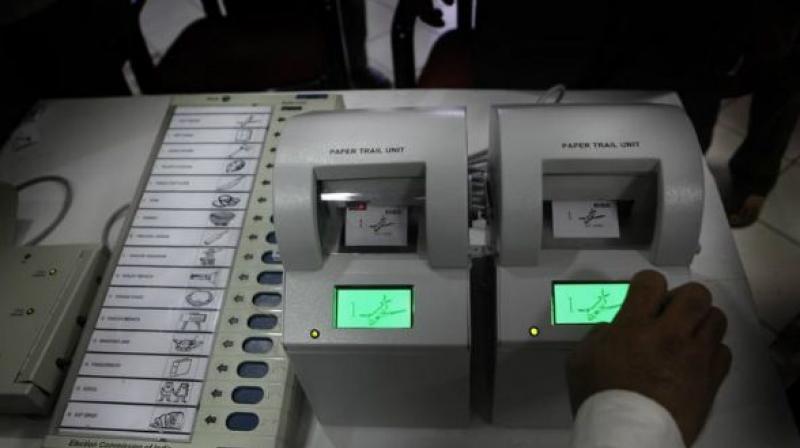Compulsory voting is impractical, says Chief Election Commissioner

New Delhi: Chief Election Commissioner Nasim Zaidi on Wednesday stated that the idea of compulsory voting has not been found practical. A similar demand was rejected by the government in Lok Sabha. He also stated that the EC will take a call on the dates of Assembly elections in Uttar Pradesh, Punjab, Goa, Manipur and Uttarakhand, after close scrutiny of the security situation.
“Issue of compulsory voting as prevalent in some countries has been a matter of discussion earlier. We found the idea not so practical. But we will like to hear,” he said addressing an international conference on voter awareness here.
In February, while responding to a private member’s Bill introduced in the Lok Sabha on compulsory voting, the then law minister, D.V. Sadananda Gowda had said though he appreciated the intention of the members, it would not be possible for the government to introduce compulsory voting and penalise those who failed to exercise their franchise.
The Law Commission in its report on electoral reforms submitted in March last year had also decided against recommending compulsory voting by terming it as “highly undesirable” for a variety of reasons such as being undemocratic, illegitimate, expensive, unable to improve quality political participation and awareness, and difficult to implement.
Responding to a question by reporters on the holding of simultaneous Lok Sabha and assembly elections, Zaidi said the Commission has told a Parliamentary committee and the Law Ministry that such an exercise can be undertaken once political parties are unanimous in amending the constitution and the poll panel’s certain demands like buying new EVMs are met.
Speaking on the sidelines of the event Zaidi said that the Election Commission will take a call on the dates of Assembly elections in Uttar Pradesh, Punjab, Goa, Manipur and Uttarakhand, due early next year, based on the inputs provided by security forces and state law and order machinery. He said the schedule will be finalised keeping in mind the weather and examination schedule.
“We are trying to assess the requirement of security forces, climate and exam schedule and all these inputs are being taken into consideration. Only then we will be able to say whether they will be staggered or multi-phase,” the CEC said. “As far as the schedule is concerned, the Commission has not given a thought as yet,” he added. While the term of the Uttar Pradesh Assembly ends in May next, the terms of assemblies of Punjab, Goa, Manipur and Uttarakhand will end in March, 2017.

